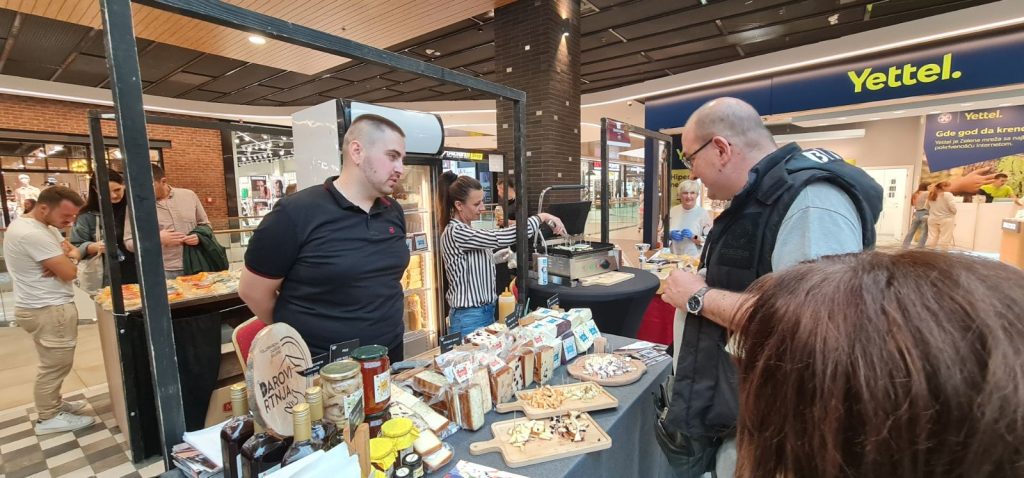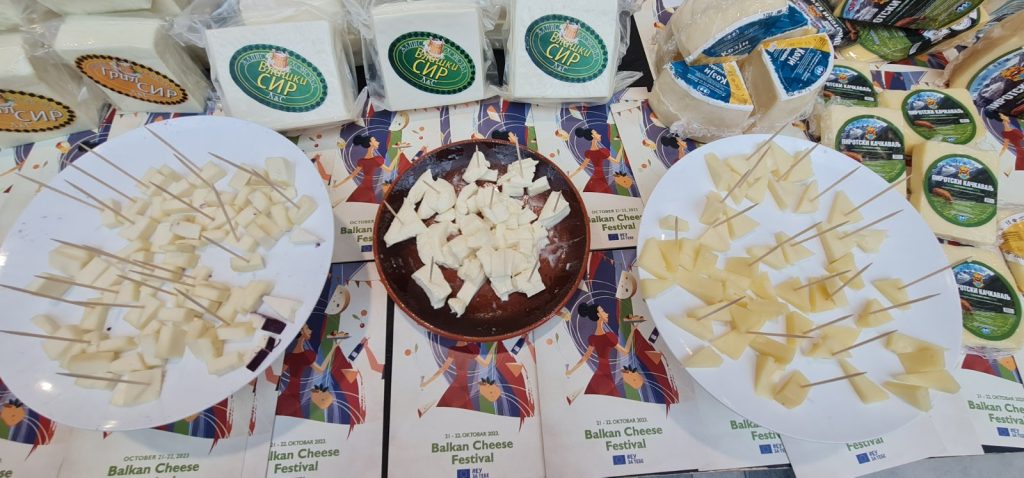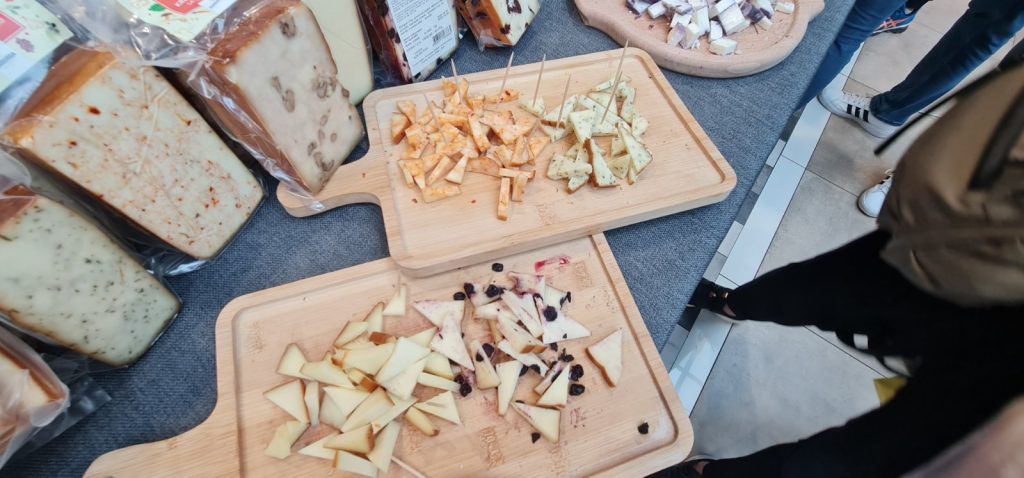Visitors of the Balkan Cheese Festival today have the opportunity to try more than 200 types of cheese, and those who do not make it to the BEO Shopping Centre in Belgrade today will be able to indulge themselves tomorrow – on Sunday, from ten in the morning until ten in the evening.
Among numerous exhibitors from France, Italy, Montenegro, Bosnia and Herzegovina, the products of high school students from Pirot stood out. In the Dairy School “Dr Obren Pejić” the famous “krstaš” (crusader) cheese, a widely known specialty, has been produced for generations.
View this post on Instagram
Kashkaval is made from fresh milk from Stara planina, based on the traditional recipe of the old masters from that region. This milk has a different taste and smell than milk from other geographical areas, due to the specificity of grazing and the quality of sweet grass and forage plants from the protected nature park. The Pirot “krstaš” cheese is included in the intangible cultural heritage of Serbia.
The students and teachers produce the cheese by hand, in the traditional way, in baskets made of hazel wicker, with very little salt. The product has a stamp – certificate of protection of geographical origin, which guarantees top quality, i.e. that the milk is exclusively from the Stara planina area, as well as that it has a minimum technological maturity of 60 days. This cheese belongs to the type of full-fat cheeses, because it contains 45 percent milk fat.
In addition to kashkaval, this school produces cheese, pasteurized milk and yogurt.
“The favourite cheese we make for me is mešanac (blended cheese), it’s a cheese made by combining sheep’s and goat’s milk. In the future, I will continue my education and engage in cheese production”, says the Pirot school student, Luka Panić.
The Dairy School with the dormitory “Dr Obren Pejić” is one of the 52 vocational schools that participated in the project “EU Support for Secondary Vocational Education in Serbia”. Thanks to new equipment and modern teaching programs, these schools largely follow European educational standards.
The European Union significantly contributed to the modern equipment of laboratories and workshops of this school. New sterilizers, incubators, then a moisture analyser – are part of the specialized professional equipment that the school received in 2018, as part of the EU project to support secondary vocational education. Other equipment was also delivered: ball mill, sand bath, trinocular microscope and other parts needed to raise the quality of practical teaching to the highest level.
View this post on Instagram
Also, the EU helps the students of this school to make their valuable work heard throughout Europe; by regularly participating in fairs and student exchanges, their traditional product became a sought-after European commodity.
Read more about the products of the Dairy School “Dr Obren Pejić” and the support this school received from the European Union in a separate news.







